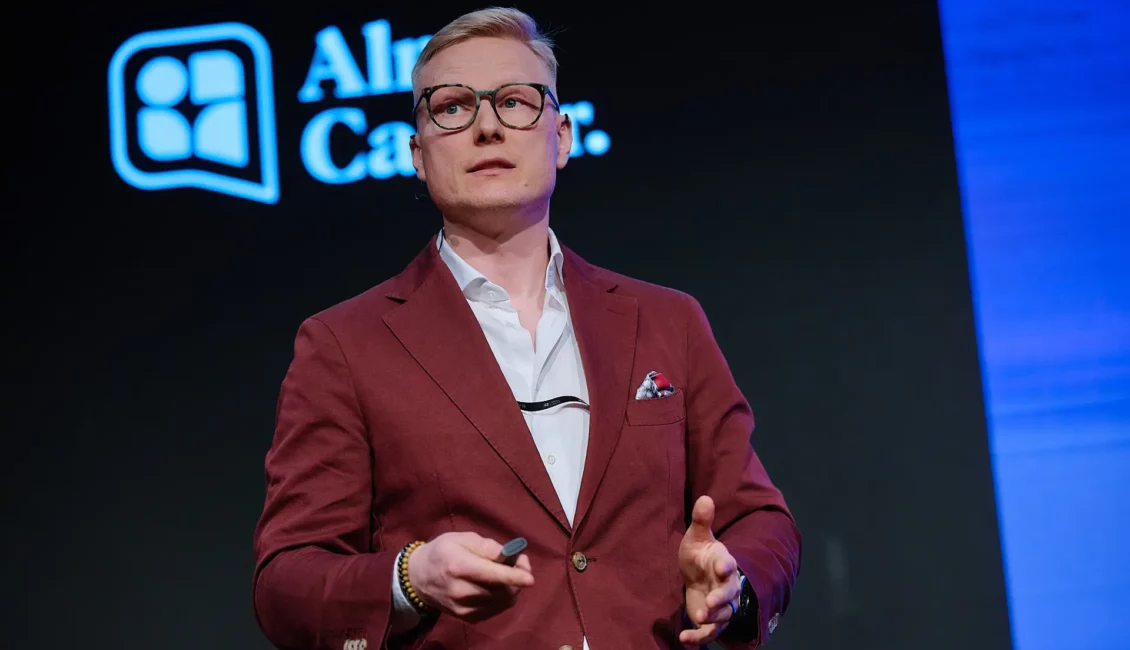
How many times have you heard that "people work for money"? It's true – salary is important. However, more and more research and practice show that it is not crucial. Candidates today want much more than basic compensation – they seek flexibility, meaning, support, wellbeing, and a feeling of being part of a culture that values them. That is precisely why employer branding and Total Rewards strategies are becoming key tools in the battle for talent.
"Money is important, people work for money, and that is a fact. But it is not the most important thing. Other benefits are often much more important than the salary itself at the end of the day,” pointed out Visa Myllyntaus on the main stage of this year’s 13th HR Days conference.
This human resources expert, author of two bestsellers, showed in his lecture “Attraction through Total Rewards” how smartly designed rewards and benefits can become the strongest magnet for talent and the key to a company's long-term success.
Three Levels of Reward Maturity
Myllyntaus explained how organizations go through three levels of maturity when it comes to the Total Rewards approach:
- Reward basics – focus on fundamental elements such as base salary and basic benefits.
- Strategic rewards – strategic consideration of rewards in line with business goals and employee needs.
- Systematic Total Rewards – a fully integrated system that encompasses employee experience, employer branding, and a strong connection to the company's strategy and values.
He emphasized that companies should not just promote benefits, but the employee experience that attracts people externally, and internally brings greater satisfaction, better performance, and growth in business results.
Five Trends Shaping the Future of Total Rewards
1. Individualization of rewards
Employees want choice. Standardized benefit packages are losing strength because different generations, and even individuals within the same team, have different needs. Some companies go so far as to give employees a “benefit budget” from which they choose what is most important to them, whether it is extra vacation, education, or wellness programs. This approach brings a sense of personal value and control.
2. Flexibility as an imperative
Flexible working hours, the possibility of working from home, additional annual leave, and quality health insurance have been at the top of candidates' wish lists for some time now. Myllyntaus emphasizes that these elements often prove to be more attractive than the salary amount itself.
“The best talents are not just looking for a job, they are looking for a lifestyle that their employer can provide,” he stated.
3. Holistic wellbeing
Care for the mental health and general well-being of employees is becoming an indispensable part of modern HR strategy. According to research by the American Psychological Association, as many as 81% of people will want more mental health-related benefits in the future. These do not have to be just psychological counseling; they can include wellness programs, more flexible and fully paid sick leave in some cases, support programs, or activities that simply provide people with a better life balance.
4. Transparent communication
Benefits are only valuable if people know about them. The example of Spotify, which launched a campaign to clearly show its employees everything they have available, without adding new benefits, demonstrates how much communication can change perception.
“What good is it to have ten great benefits if employees don't even recognize them?”,` asked Visa. Transparency is just as important as the offering itself.
5. Connection with strategy and values
Neither benefit will have a long-term effect if it is not in accordance with what the company is. If the company's values are, for example, sustainability and community, then the Total Rewards strategy must also reflect those values through community support, green benefits, or team programs. However, although it is important that they align with company values, they must also align with the wishes and needs of employees. This is how benefits become part of the identity and create authentic attraction.
An investment that pays off manifold “If you are not an attractive employer, it will cost you much more than investing in the development of your benefits”`, warned Myllyntaus.
Companies with a poorer reputation have to pay up to 20% higher salaries to attract equally high-quality talent as those with good employer branding.
His lecture sent a clear message: Total Rewards are not just an HR tool, but a strategy for business survival. Those who understand the needs of their people and know how to transform them into an experience will be the ones that the best talent will choose and stick with.
See you next year from April 21 to 23 in the beautiful ambience of the Lone Hotel in Rovinj!





